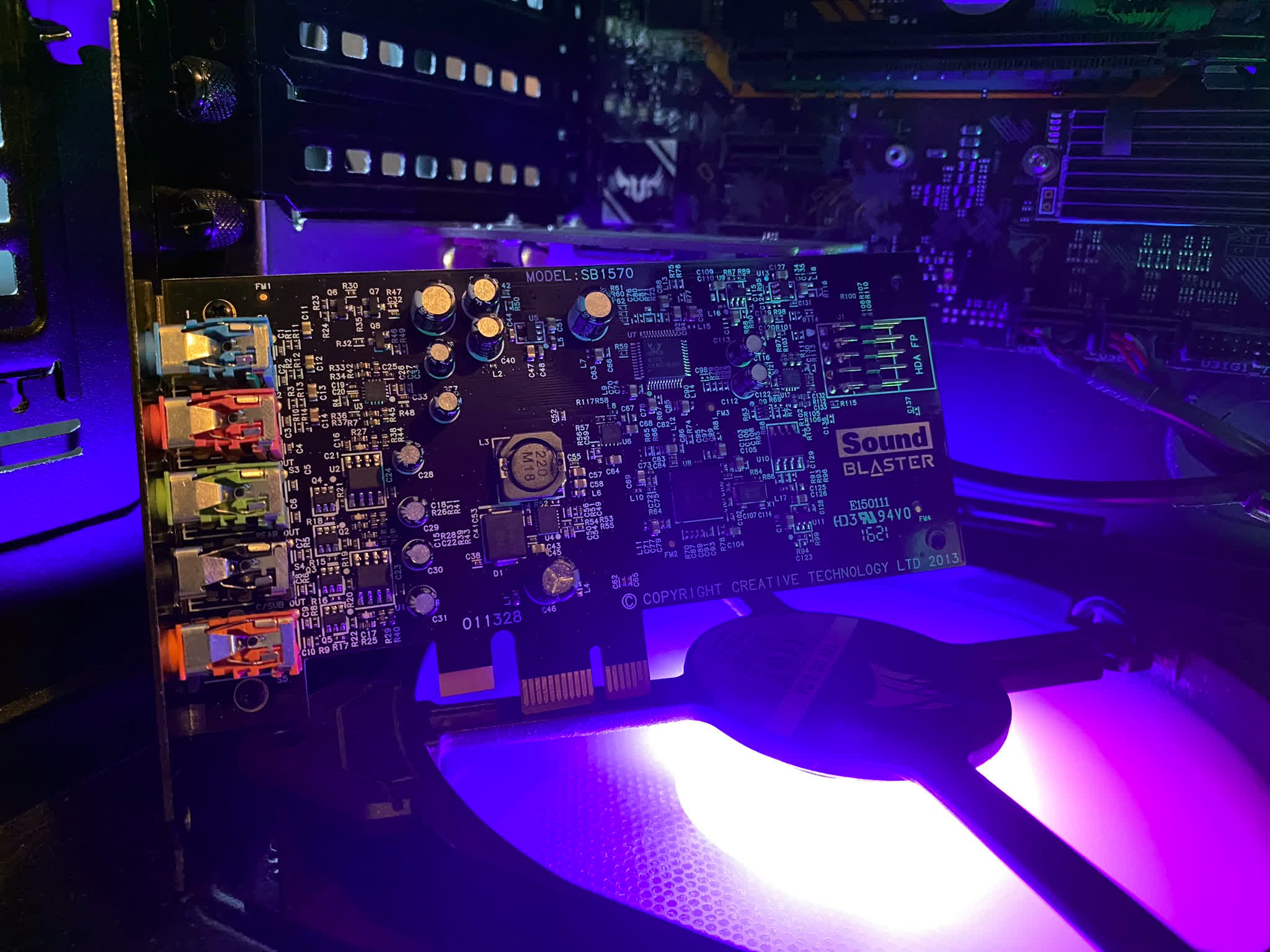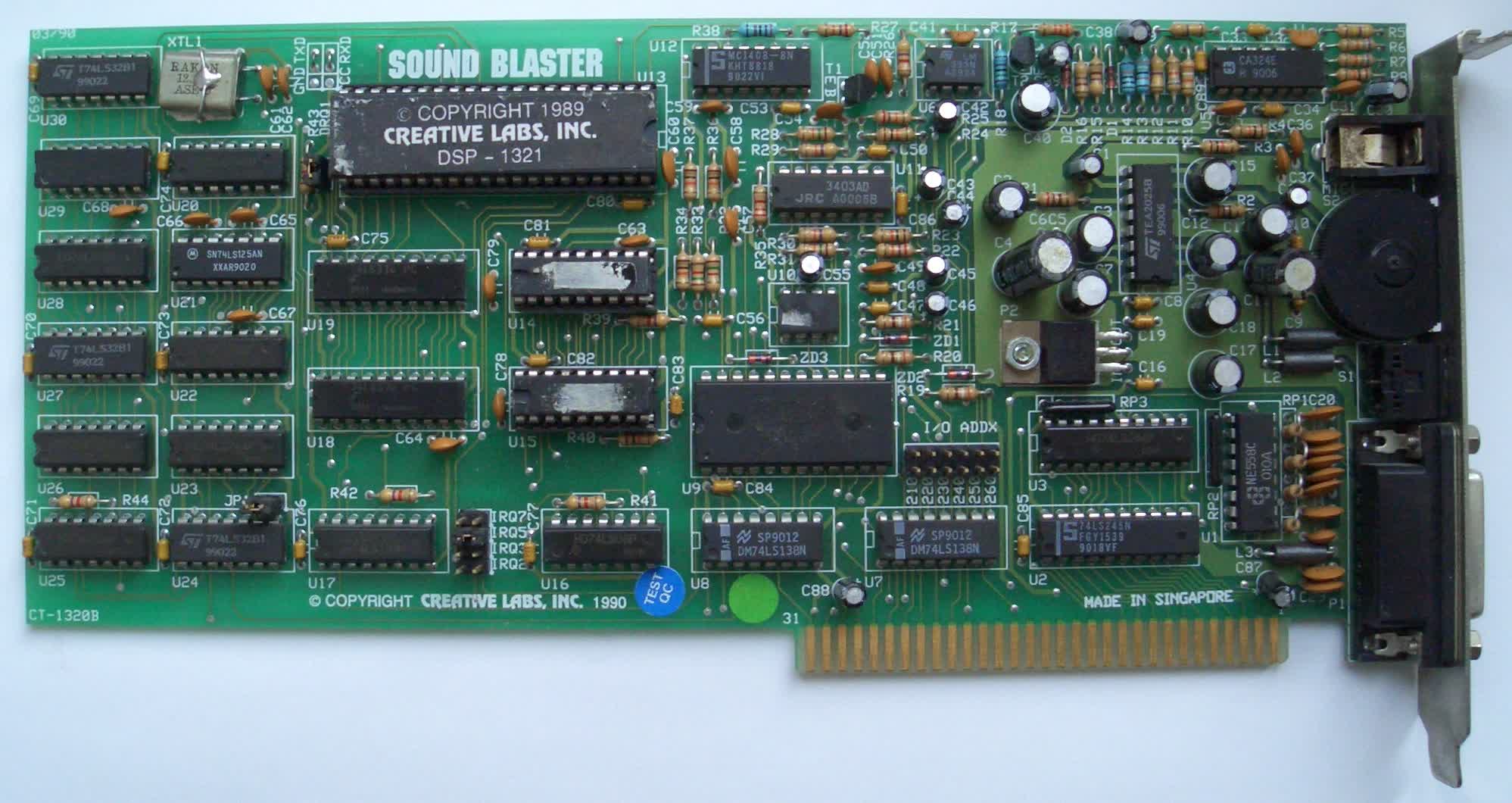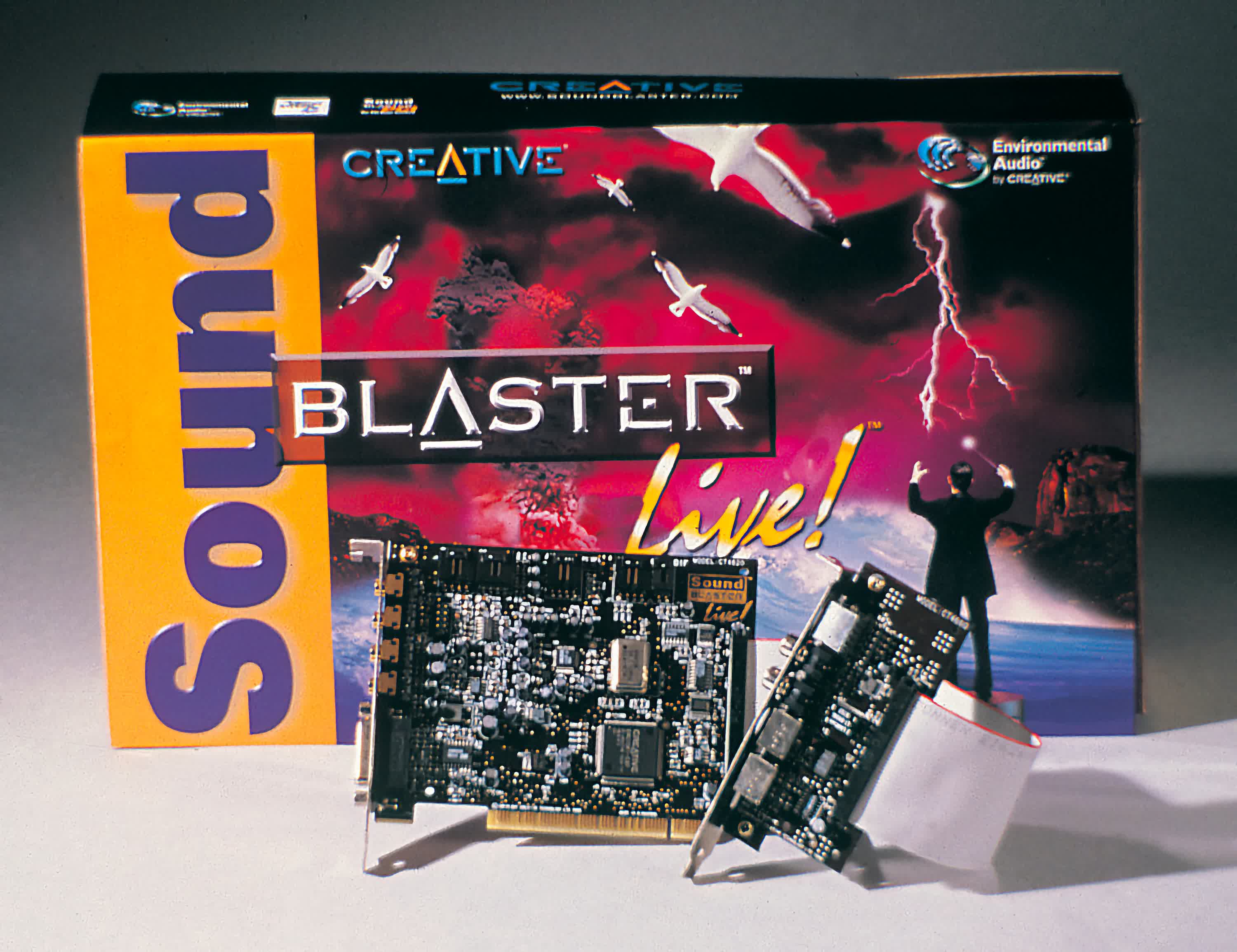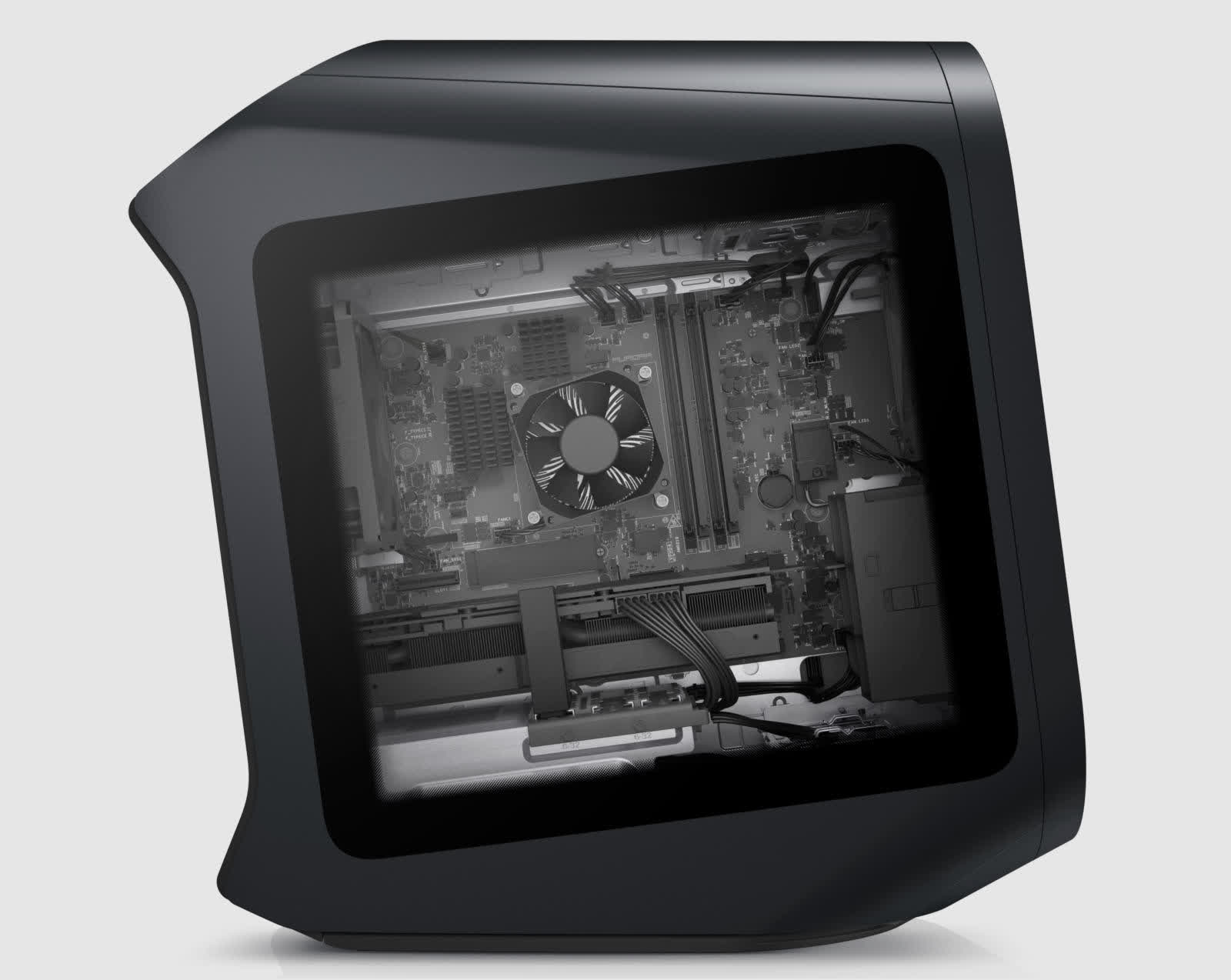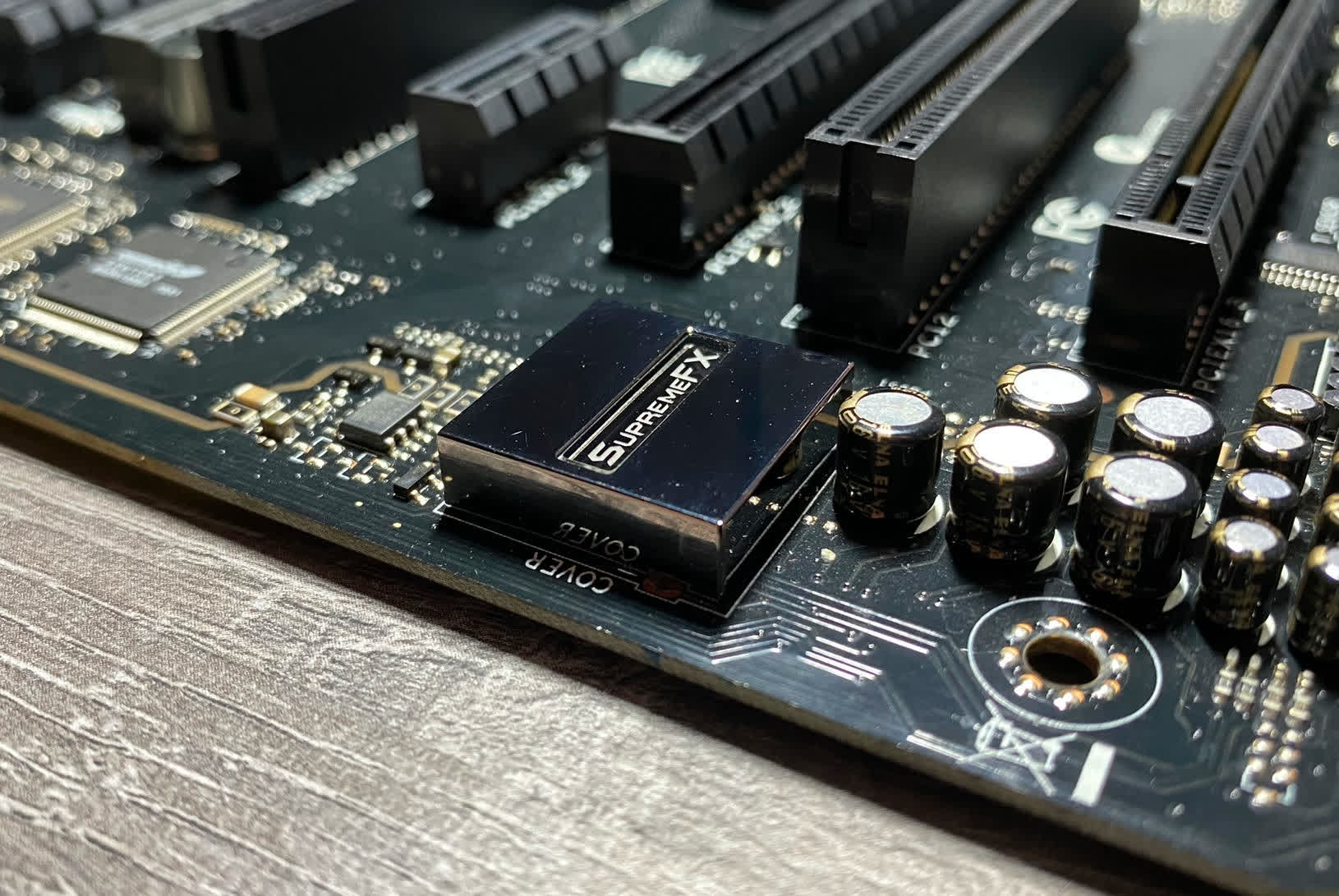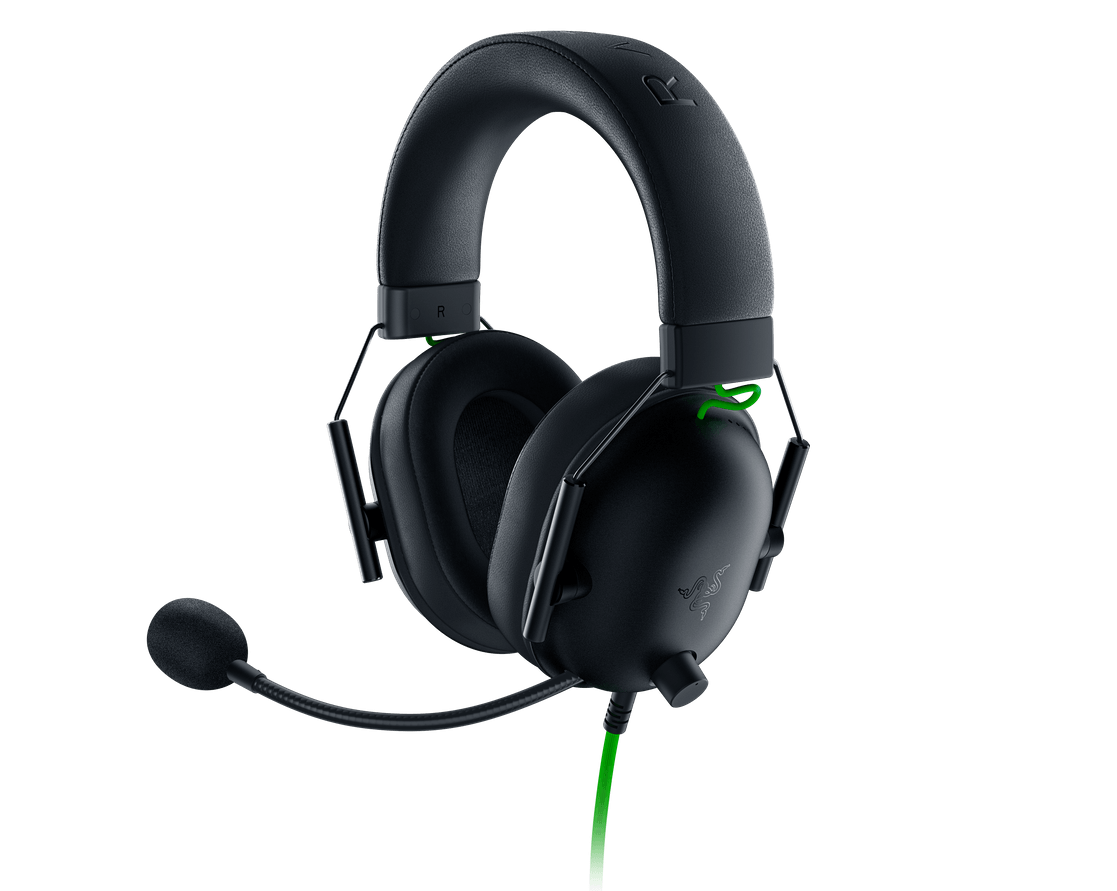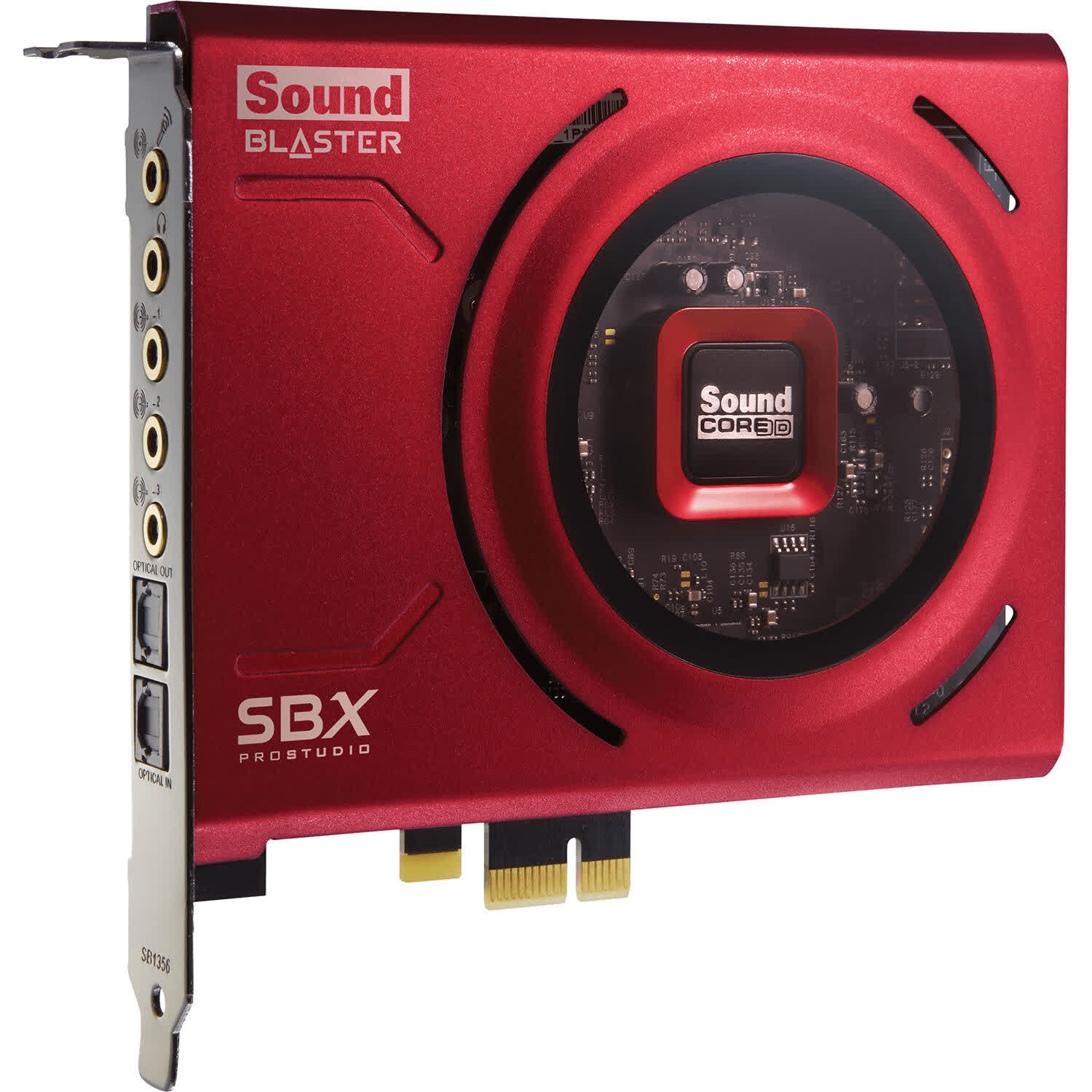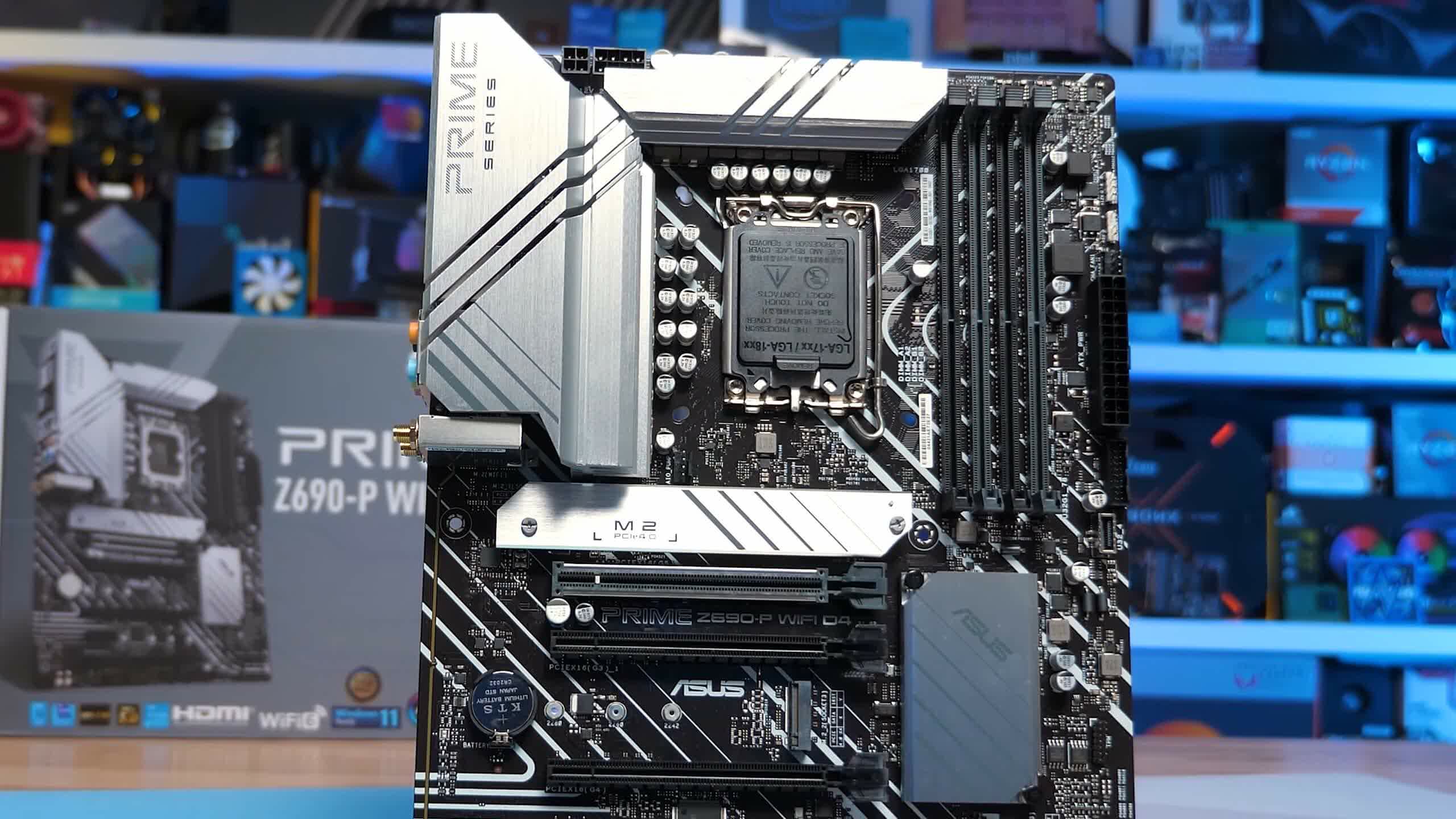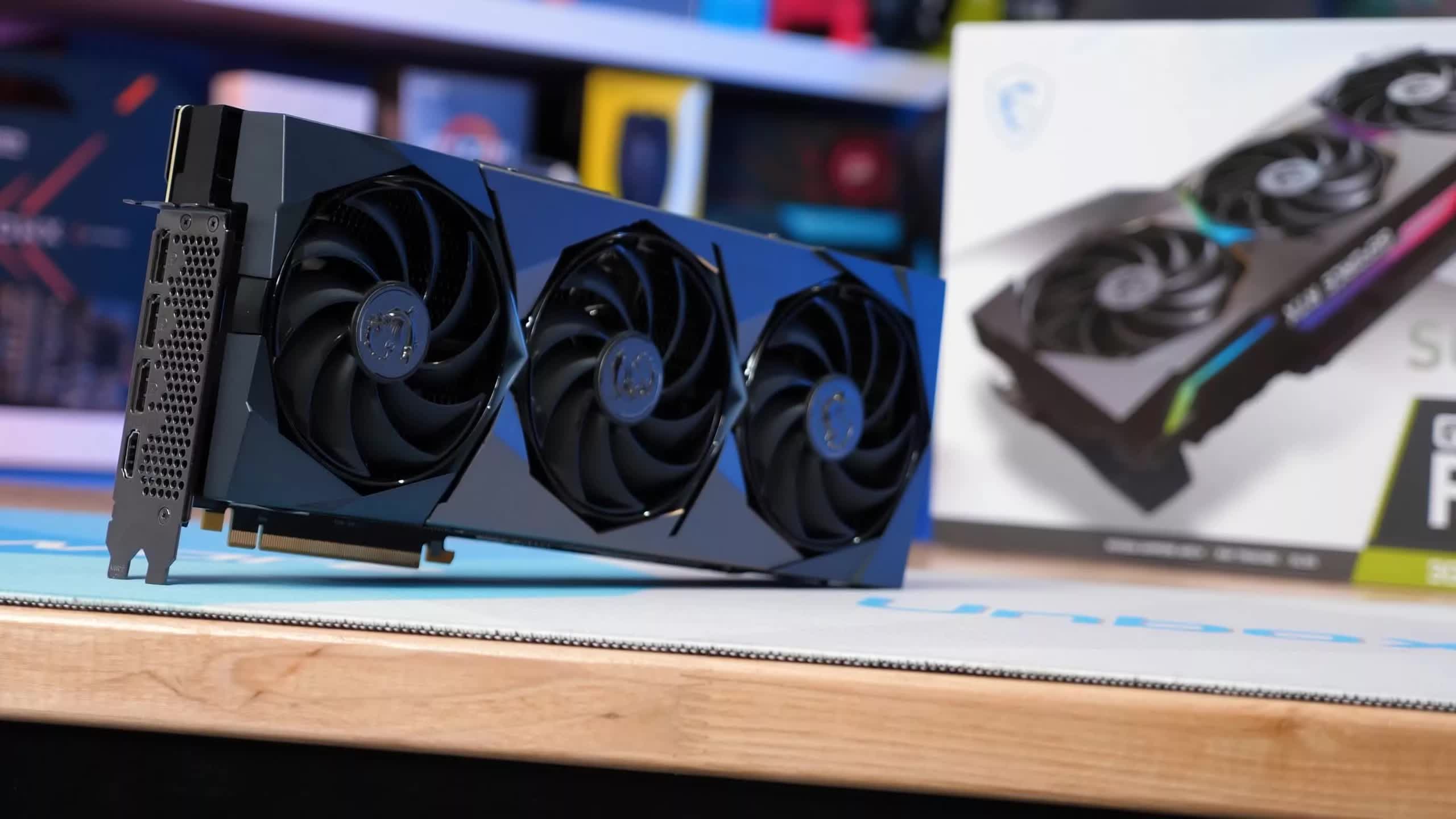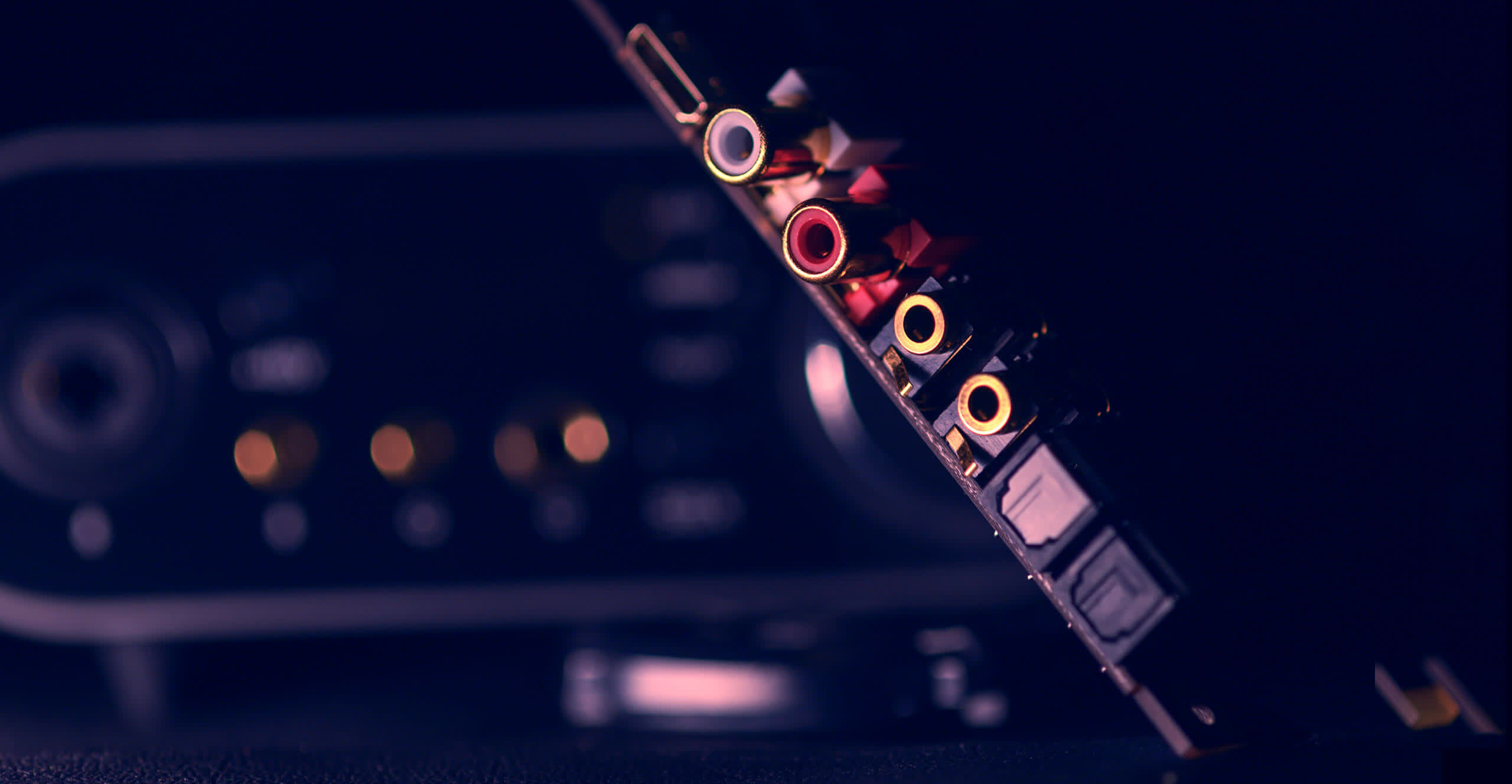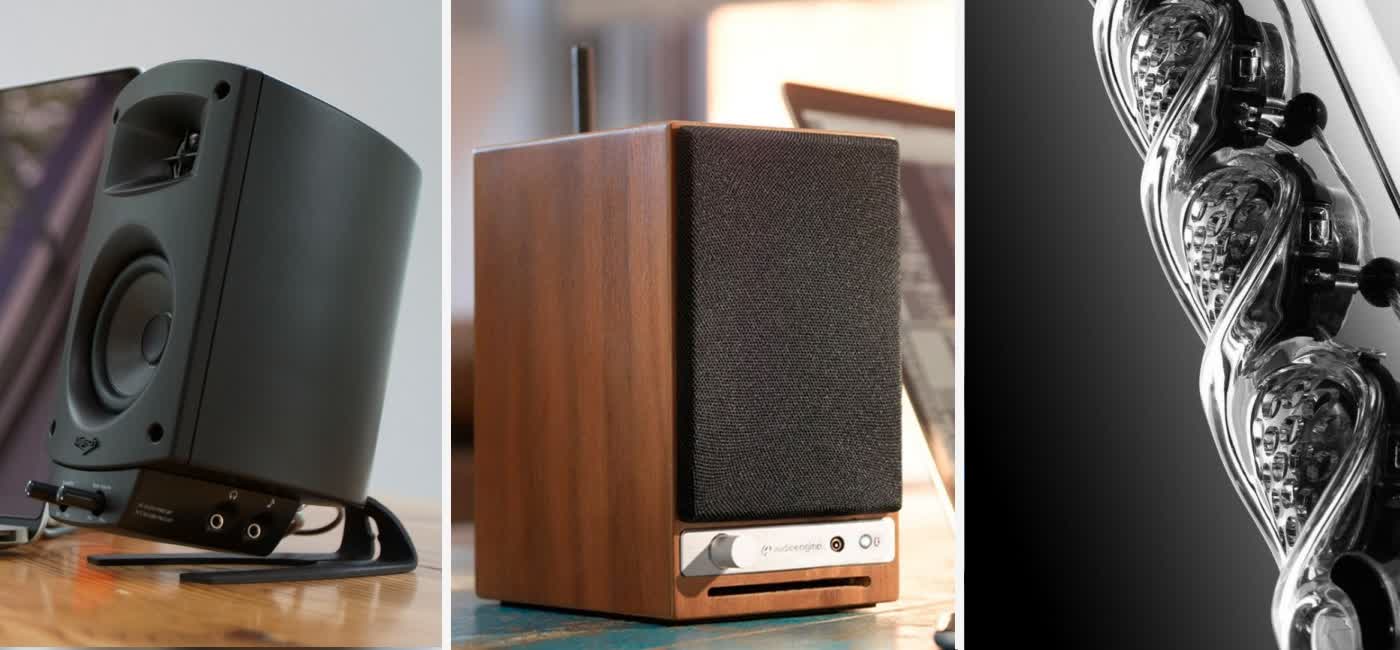So you've gone through your checklist of components you want to purchase for building your new PC. You've read all the reviews and carefully selected the right models for your budget. Every part seems to be there but then you notice something that you'd not considered before – a sound card.
It's obvious what this product does, but is it worth getting one? If they were as important as a graphics card, then surely they'd be promoted and reviewed a lot more. Well, read on as we don our deerstalker hats and try to solve the case of the sound card conundrum.
A quick trip down history lane
Silicon chips dedicated to creating sound have existed in home computers for many decades. The popular Commodore 64, which was flying off shelves back in 1982, sported one that boasted three separate oscillators. Each could produce multiple different waveforms, and supported ring modulation, filtering, and digital audio playback.
Users of IBM PC machines at the time were stuck with a far more basic sound chip, that could barely manage to utter a square wave. As the PC became increasingly more popular with home users, the industry began to see expansion cards hosting chips from the likes of Yamaha and Philips, that could generate proper audio and music.
But it was the gaming industry that really pushed for something better, as early sound cards were very much designed to be used by a specific application.
By the time the 1990s came around, the top-selling expansion card for PCs, of almost any type, came from one manufacturer: Creative Labs. Their Sound Blaster card marked a defining period in PC audio and bolstered by Microsoft's support, the card and name became synonymous with PC gaming.
For over a decade, home computers around the world contained some kind of variant of Creative's expansive product line or something cheaper from an OEM supplier. The Sound Blaster Audigy and X-Fi models were hugely popular, thanks to their wealth of features and sound quality.
Today, though, if you go and purchase a desktop PC, you're almost certainly not going to see a dedicated sound card included in the package. Many vendors don't even bother offering one as an option, although for those that do it's still almost always a Creative model.
And it's not like there's a dearth of other sound cards to choose from. Trawling through online PC component stores will show that Creative dominates the market, with dozens of different variants to choose from.
The likes of Asus, EVGA, and countless other copycat brands also have lots of products available, but the majority seem to be nothing more than a token effort. So what's going on? What happened that sound cards fell out of favor?
Get onboard for low-cost audio
As with all things, it pretty much came down to money. System builders will look to cut costs in every possible part to maximize their profits. And they were helped in this endeavor by motherboard manufacturers. As the calendar shifted into a new millennium, PC mainboards started to sport audio output plugs, in addition to the usual array of parallel and serial ports.
Powering these sound outputs were basic codec chips from vendors such as VIA, Avance Logic, and Realtek. The latter two are significant, because Realtek purchased Avance in the mid-90s, before fully integrating it a few years later.
These days, it's hard to find a mainstream motherboard that doesn't come with an onboard sound chip, and they're nearly always a Realtek model.
Like AMD and Nvidia, Realtek is a fabless semiconductor company – this means it doesn't physically make its own chips, instead using countless other manufacturers to do so. If you look through the websites of Gigabyte, Asus, MSI, and other motherboard companies, you'll see two very common Realtek products being used: the ALC1200 and ALC1220.
Both are decent codecs (the latter is especially good) and offer a feature set that wouldn't look out of place with a high-end sound card from just a few years ago. However, it wasn't just onboard audio chips that pushed sound cards from the limelight.
No card, no motherboard chip, no problem
Let's just imagine that you have a new PC and for some bizarre reason, there's no audio chip on the motherboard and there's no sound card installed either. You might think that your machine is going to be mute until you purchase the latter, but that doesn't have to be the case.
If you check out some of the best gaming headsets, you'll see that those come with a device that plugs into your PC via a USB port. The headset then either physically plugs into the device or uses a wireless system to transmit to it.
Others simply have a USB wireless dongle – no base unit, no wires, just plug into the PC and switch on the headset.
It might seem like such systems don't have any kind of audio chip, but they do. It's either in the headset itself, in the form of a simple digital-to-analog converter (DAC) and amplifier, or a more complex chip in the base unit.
Regardless of what's used, or how it's connected to the computer, these devices take the digital stream (created by a game or media player) and convert it into an analog signal for the headset to deliver.
Any fancy sound enhancements are done by the PC itself – instead of dedicated hardware carrying out the processing, the CPU is used to do it. And for millions of people around the world, this solution is more than good enough for their needs.
Which brings us to the nub of this article: is it actually worth buying a discrete sound card?
Simple question, simple answer?
This isn't the first time we've raised this question. As far back as 2013, we showed an audiophile's take on the subject and the ultimate answer was "maybe not" albeit with some caveats... namely that an enthusiast's PC deserves one.
But in the world of semiconductors, progress is nearly constant due to consumer demand and fierce competition. What was deemed suitable back then, in terms of aspects such as signal-to-noise ratio, frequency response spectrum, or the amount of crosstalk, would be dismissed immediately today.
The best hardware codecs to be found on motherboards today aren't mere afterthoughts – they can be quality products in their own right.
Nearly a decade on, the matter is perhaps even less clear-cut, and for one simple reason. If discrete sound cards were so much better than onboard codecs or USB systems, then the typical PC gamer or enthusiast would be routinely purchasing them.
OEM vendors would also be capitalizing on this by ensuring their best models were supporting the most expensive sound cards out there, and then charging a premium for them, much like they do with CPUs and graphics cards.
On that basis, it would seem that sound cards are very much a niche product and not worth considering for the vast majority of people.
It's not that elementary, Watson
There are several counterpoints to all of this, though. Consider how many PC users are completely happy with their 1080p, 60Hz monitors, at home or at work. They may think that such screens are all they would ever need and yet when compared directly against a high resolution, high refresh rate monitor, they pale in comparison.
The same is somewhat true of discrete sound cards. The insides of computers are very noisy, in terms of electrical interface, and despite the best efforts of motherboard manufacturers to isolate the onboard audio chips from everything about them, they're often situated close to hulking big graphics cards.
Those components, due to their huge levels of current, high frequencies, and constant switching can significantly affect poorly isolated codecs. Despite the best efforts of motherboard vendors to shield onboard chips from electrical interference, it's not possible to test every possible configuration of components.
Of course, external USB sound devices aren't subject to such problems, but those and onboard chips also suffer from another problem. The bulk of the signal processing in such audio systems is done via the CPU, especially when virtual sound effects or spatial enhancements are enabled.
Dedicated audio chips handle all of this work, offloading it work from the CPU. This, in turn, gives it more scope to crunch through other tasks faster. Today's central processors are exceptionally powerful, so the difference may only be a few milliseconds, but for some people, that's significant.
A final thing to consider is that people may simply not realize how poor their audio output is.
Just like a good graphics card needs a high-quality monitor to demonstrate its true capabilities, a good sound card can only stand out when paired with a great set of headphones or speakers.
A bargain-bin set of cans won't have the capability to transmit audio properly, so if the initial source of that sound is poor to begin with, then there's no possible way of telling.
Of course, if absolutely none of the above applies to you, then getting a dedicated sound card isn't going to make your gaming or overall experience any better. Today's onboard audio chips and USB sound devices are generally very good for what they are, but at least we now have a clearer picture of the conundrum.
Worth buying a sound card? Yes or No.
To wrap this all up, we can return to the essential question of this article: Are sound cards worth buying, or are they just a niche product? The answer is "yes" – to both parts. They are worth purchasing, for the right user, with the caveat that it's a niche market, no doubt about it.
Competitive gamers should think about getting one, along with a high-quality set of headphones or speakers, to ensure they can pick out all of the in-game sounds with maximum clarity and for minimum CPU overhead.
Podcasters, streamers, musicians, or anyone who creates audio or video content should definitely be using a discrete sound card, and one that provides an external amplifier, too, to ensure maximum audio quality and equipment compatibility.
And if you're experiencing a variety of audio problems, such as stuttering during music playback, crackling from speakers when gaming, or just dull, muddy sound overall, then a proper sound card may well be the cure you're looking for.
For people that sound cards are appropriate purchases, it's somewhat fortunate that their sales are still high enough to prevent them from having prices in the low-volume selling segment. Compared to CPUs and graphics cards, a good discrete audio expansion card is a veritable bargain.
And with that final thought, we can close the case for another ten years or so.
